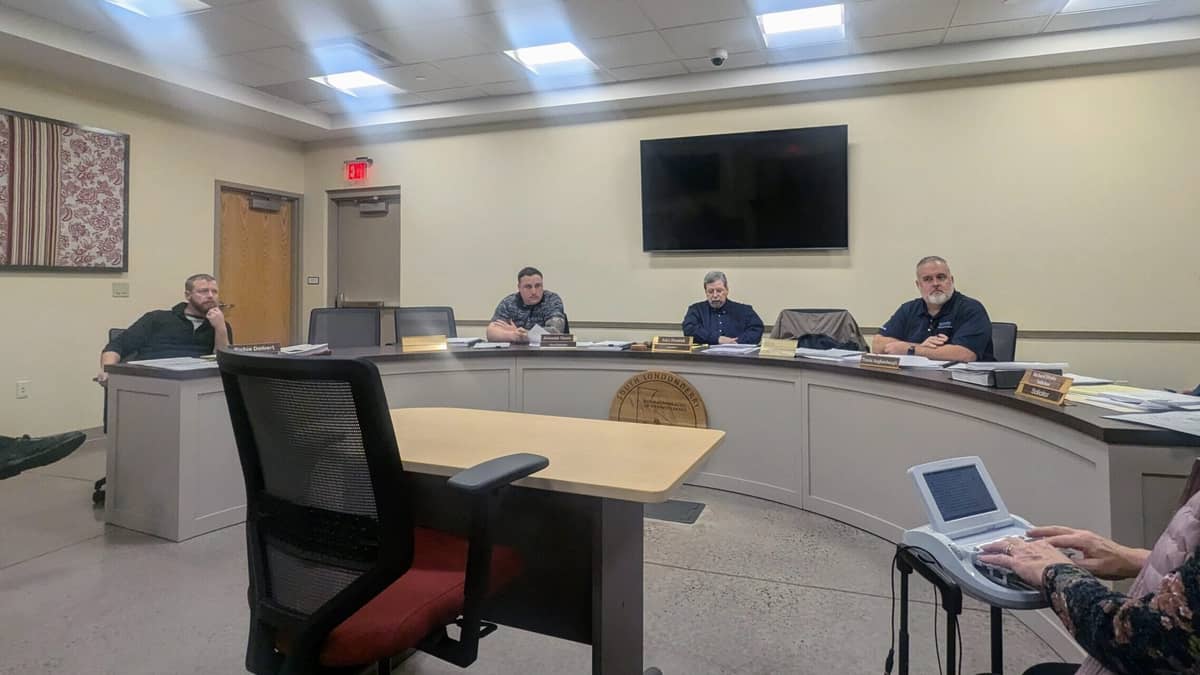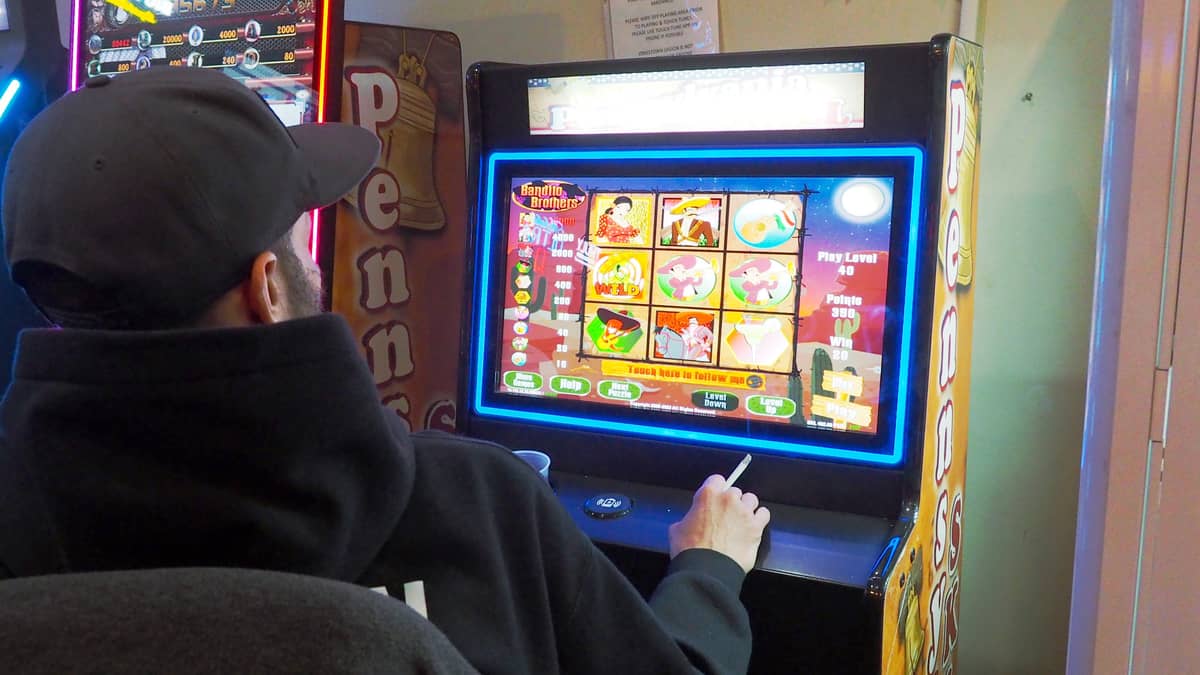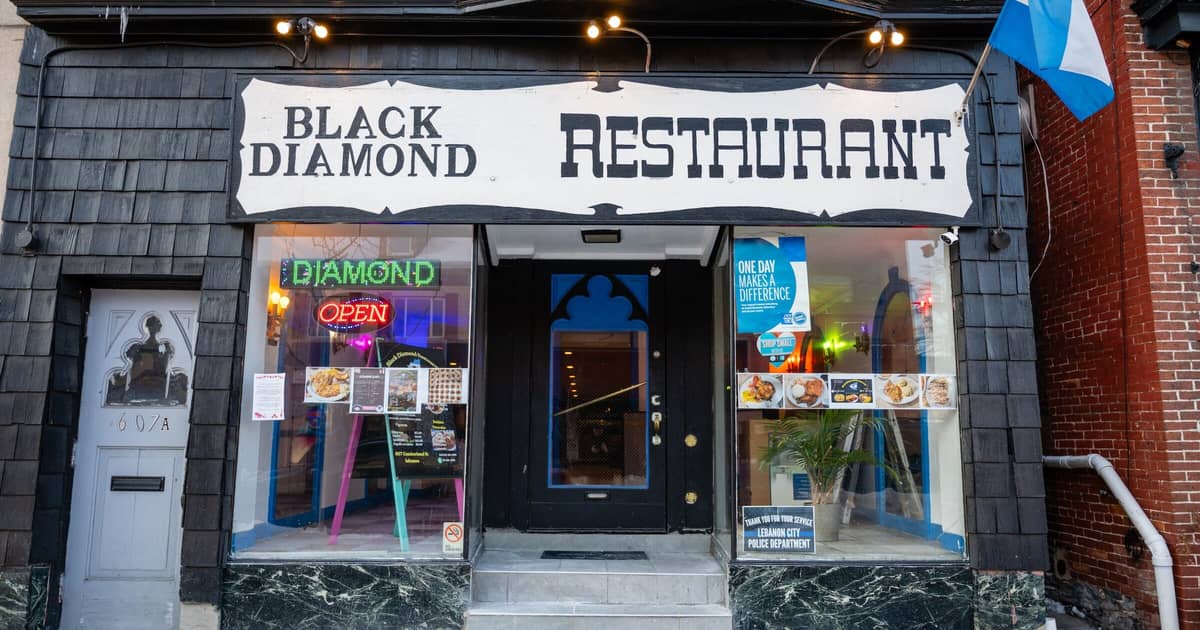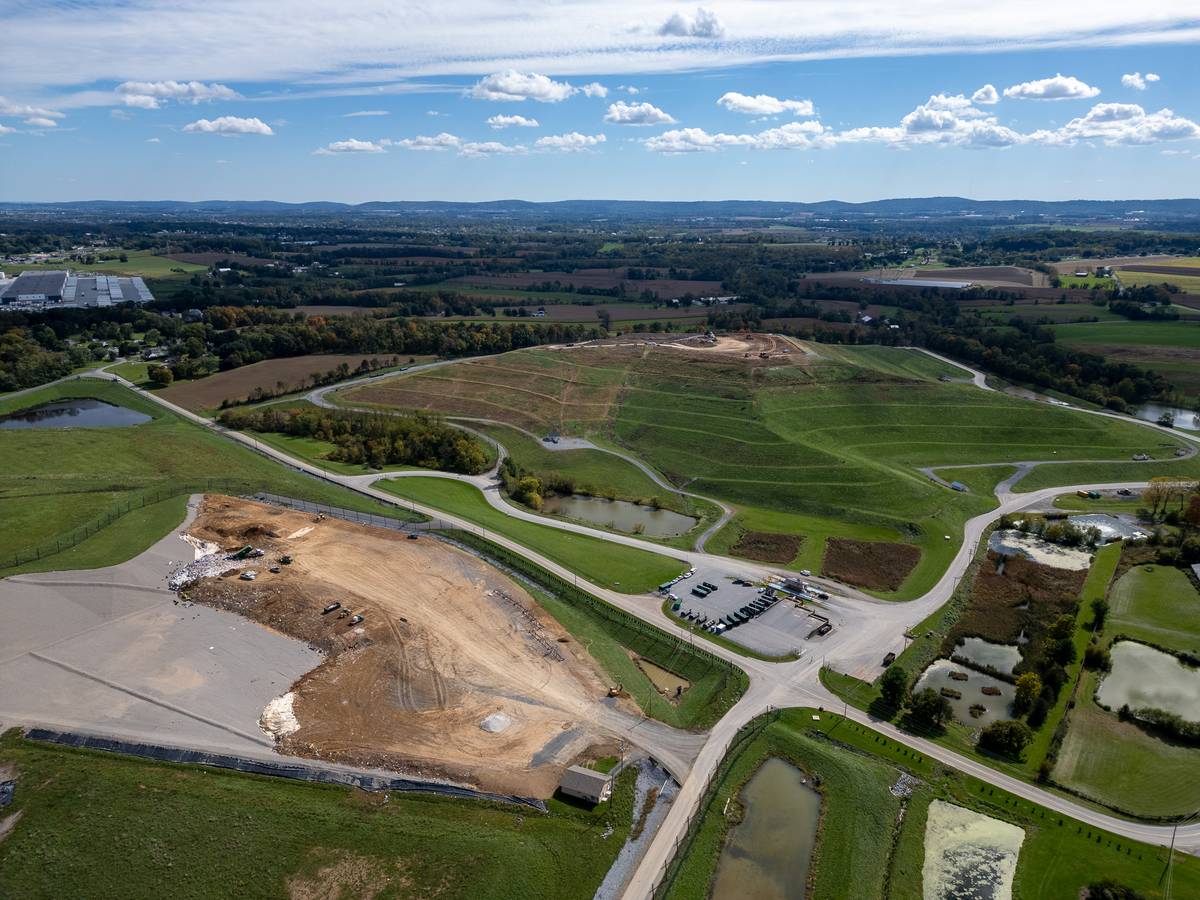Quick Take:
After hearing arguments from the Timbers facility for adding a microdistillery, gift shop, and increasing hours, as well as from neighbors opposed to the changes, the South Londonderry Township Zoning Hearing Board could not come to a decision during a meeting Wednesday. They will reconvene Jan. 16 to make a decision.
This article was funded by LebTown donors as part of our Civic Impact Reporting Project.
At a nearly 3 1/2-hour meeting Wednesday, the South Londonderry Township Zoning Hearing Board ultimately could not come to a decision on requests from the Timbers Restaurant and Dinner Theatre.
The board scheduled another meeting on Jan. 16 to render a decision.
At present, the 350 Timber Road bar and restaurant is open to the public Thursdays through Saturdays, with private events scheduled throughout the week. The hotspot also includes a theater and banquet hall.
The potential new owners of the Mount Gretna restaurant would like to add a microdistillery, reestablish the gift shop, add a coffeeshop, and increase restaurant/coffeeshop hours.
Despite lying in land zoned low-density residential, the restaurant was established in 1952 and predates the ordinance and is thus entitled to both continue that use and expand within reason, explained zoning officer Frank Chlebnikow.
In his review, Chlebnikow found the estimated 2,060-square-foot microdistillery addition to be a “natural expansion” of the existing bar and restaurant, as long as the liquors are sold in-house. However, he said the selling of spirits by the bottle in the gift shop and through other locations is a “new use” that requires a variance from the board.
He said he also found the coffeeshop use to be a “natural expansion,” but said that a variance would be required to expand the restaurant’s hours into the morning.
Prospective new owners of the Mount Gretna restaurant have requested variances for the following:
- Reestablishing a gift shop
- Selling liquor produced in the microdistillery by the bottle, both in the gift shop and at other locations.
- Increasing hours to up to seven days a week, with the coffeeshop planned to be open from 6 to 11 a.m. and the restaurant/bar planned to be open 4 to 10 or 11 p.m. weekdays and 11 a.m. to 10 or 11 p.m. weekends.
He said the board’s choice is between filing an appeal against the zoning officer’s opinion (which he said he is “very confident” in) to oppose the microdistillery, granting some or all of the requested variances, or rejecting the variances.
History and today

The Timbers was first built in 1952 as a restaurant with a bar and banquet hall, as well as living quarters.
The restaurant passed into the ownership of the Briody family in 1960. Rebecca Briody, one of three sisters who inherited the property in 2021, testified Wednesday that a gift shop was added to the restaurant in 1962, and the theater was added in 1966.

She said that through the 1970s, the restaurant was open to the public six days a week, with private events sometimes falling on the day off.
At some point, Briody said, the restaurant retired the giftshop and switched to selling merchandise at a table near the restaurant. To this day, the Timbers sells art this way.
Eventually, hours were reduced to five days a week (Tuesday through Saturday), where they remained until 2020. During the COVID-19 pandemic, the family pivoted toward more private events for safety reasons, dropping hours to three days a week while hosting funerals, parties, wedding receptions, and more other days.
Now, the sisters are looking to sell the restaurant to someone willing to preserve its existing use, and Timbers Acquisition Group — evidently made up of people from Lebanon, Manheim, and Lititz — has expressed interest.

Matthew Stargel, partner in food distribution company Founders Market and Co. and member of Timbers Acquisition Group, said he plans to continue all the current uses of the facility, which he described as a “cultural art center.”

Briody said she likes the plans the group has been forming, saying that they “want to keep the history while bringing in fresh ideas.”
Stargel and partners have not closed on a deal for the site, as some details of what can be done with the facility are still up in the air.
If variance requests are rejected outright, he said, “it would make the project undoable.” He noted that if the facility goes out of business, the historic structure will not be usable for homes, and would likely be demolished.
Requested variances
Zoning variances are granted to properties requesting uses other than those laid out in the zoning.
As the Timbers facility is in a residential zone, no uses — proposed or existing — fall into the zoning criteria. However, with the business predating the zoning ordinance, it is legally entitled to continue to exist as is and make reasonable expansions.
It is the job of the zoning board to decide which, if any, of the variances to grant, and whether to place any conditions on the variances granted.
If the applicant disagrees with the board’s ultimate decision, they are entitled to appeal it.
The following variances have been requested:
Reestablishment of gift shop
In his review, Chlebnikow found the Timbers’ gift shop to have been “abandoned,” which was why he directed the applicant to seek a variance.
However, the applicant argues that there was never intent to abandon the gift shop. Attorney Dwight Yoder cited a state court case that found that a racetrack left vacant for nine years before resuming business never was abandoned, with “intent to abandon” being required.
After the closure of the gift shop space, the Timbers has continued to sell merchandise and art.
Yoder said that the gift shop would have hours mirroring that of the restaurant.
While Yoder said it was not clear whether they legally need to add parking spaces for the gift shop, they said a rough plan for the addition of eight ADA-compliant parking spaces included space for a gift shop employee as well as employees for the microdistillery.

The applicant also argued that gift shops were common for businesses like the Timbers, with a restaurant and theater.
Bottle sale of microdistillery liquors
Chlebnikow said that with spirits from outside the restaurant already being sold to bar patrons, he found the production of alcohol in-house to be a natural progression, not requiring a variance.
Stargel cited other similar facilities in Lancaster with microdistilleries, though a resident said nothing similar exists in Lebanon.
However, the applicant does need a variance for bottle sale of liquor from the distillery, as well as potential sale of liquors from other Pennsylvania microdistilleries and sale of liquors outside the restaurant.
Yoder said that the microdistillery would not become a primary use for the site, with most external sales existing to promote the Timbers. Stargel estimated that the expansion will only generate around a box truck per week of traffic.
Stargel said that while they are requesting the right to sell bottles from other microdistillery, they “would much prefer to” sell their own and will primarily be doing so.
The microdistillery would also need to meet all requirements for such a structure, including adequate fire safety measures and approval from the liquor control board.
Any increased water/sewer requests would need to be approved, though Stargel said he was unaware of capacity limitations on either as of now.
Increased hours
As the restaurant is currently open to the public three days a week, the applicant needs a variance to increase hours.
Some neighbors present balked at potential traffic generated by early open times and late close time, for a business that currently barely disturbs them aside from occasional large events like weddings.
Stargel said that while they are requesting a variance for seven days a week and an opening time of 6 a.m. for the coffeeshop, he doesn’t expect that they will actually be open that often.
Instead, he explained, they are requesting a blanket approval so that more approvals are not necessary in the future. He anticipates that the coffeeshop — planned to sell coffee and pastries primarily to locals — would settle on a 7 a.m. opening time.
The coffeeshop would be located within the existing structure. Stargel does not expect heavy traffic, especially as the coffeeshop would not have a full menu.
He explained that they plan to model close times for the restaurant on the Briodys’ existing model, where the kitchen closes at 9 p.m. but diners are allowed to stay and drink until around 11, depending on the night.
Briody said that most of their customers are older folks who are happy to head home by 10 or 10:30 p.m.
Public comment

Following arguments from the applicant, the board heard public comment from others in the community.
Timbers neighbor to the south John Brommer said that he didn’t move to the low-density residential neighborhood to live near an open-seven-days restaurant, noting that while the restaurant is usually quiet, he expects that to change if variances are granted.
“Progress has to happen, but that has an expense,” he said. “The current owners are kind and generous people, I understand they need to move on. Just be as kind and generous to us as they have been.”
Other public commenters spoke to the natural beauty and wildlife present in the Timbers community, voicing concern that the woodland charm could be marred by these changes.
Timbers resident Stephanie Zaring stated her opposition to a seven-day operating schedule, voicing concern that the changes presented to neighbors in a recent community meeting were less busy than what was requested in variances, including operating hours. This was echoed by other public commenters.
One resident implored the board to consider restrictions on expansion of the microdistillery Another mentioned water filtration issues nearby residents have already experienced.
Attendee Gene Otto testified to the restaurant having been as active in the past as the applicants claimed, and voiced his approval of the group that is considering purchase of the facility.

“I think they’ve found a group that seems extremely capable of carrying on the traditions,” said Otto, though he went on to warn of the fire dangers posed by microbrewing. “I had some concerns about the microbrewing. … I don’t know of any restaurant in our area that has a microdistillery.”
After hearing from all parties, the board entered into executive session at 9:35 to 10:22 p.m.
On returning from executive session, board members said that, after hearing responses for a few follow-up questions, they would adjourn the meeting without a decision.
“Given the amount of decisions that need to be made, that’s not gonna happen tonight,” explained board member John Horstick.
Another meeting has been scheduled for Jan. 16, at which time the board will immediately reenter into executive session and come to a conclusion.
Questions about this story? Suggestions for a future LebTown article? Reach our newsroom using this contact form and we’ll do our best to get back to you.

Keep local news strong.
Cancel anytime.
Monthly Subscription
🌟 Annual Subscription
- Still no paywall!
- Fewer ads
- Exclusive events and emails
- All monthly benefits
- Most popular option
- Make a bigger impact
Already a member? Log in here to hide these messages
Our community deserves strong local news. LebTown delivers in-depth coverage that helps you navigate daily life—from school board decisions to public safety to local business openings. Join our supporters with a monthly or annual membership, or make a one-time contribution. Cancel anytime.























